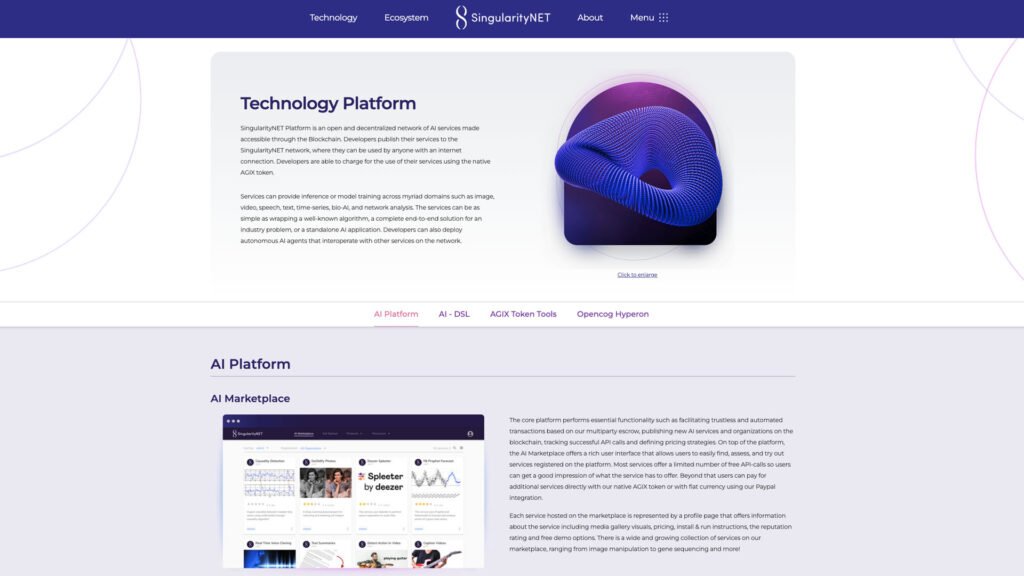The Best of Both Worlds: Putting AI on The Blockchain

In the year since AI tools like ChatGPT and Dall-E burst onto the scene, every industry has been grappling with tailoring these tools to their own custom needs. As one of the most tech-savvy fields out there, the crypto scene has been heavily impacted by AI at every stage, from development to getting a final product to market.
While AI and cryptocurrencies are separate technologies with distinct use cases, there’s more than enough overlap to force anyone working in the field to take note. It all comes down to the Blockchain and how companies are using it to train their own bespoke AI models.
Bridging the Gap
To bring AI and crypto together, one needs to look no further than the Blockchain. This immutable ledger provides an amazing amount of data that AI developers can use to train systems. Data from the Blockchain is especially valuable as it is transparent, secure, and openly verifiable. When dealing with finance, security, and reliability are the name of the game, so this kind of data has already proven incredibly valuable, which is why industry giants like crypto casinos didn’t take long to adapt to websites like rooli.net. Getting back on track, the Blockchain provides three major benefits to crypto developers; authenticity, augmentation, and automation.
- Authenticity
The blockchain provides devs with an unprecedented degree of insight into the framework and functionality of an AI. The so-called “Black box” problem has long been a thorn in the sides of AI developers so having unfettered access to the data being fed into a program is a major win. By storing all training data on the Blockchain, it becomes much easier for users to trust the data and recommendations provided by an AI tool.
- Augmentation
Perhaps the biggest advantage that AI can offer is the pure speed at which it operates. Even rudimentary AI can read, understand, and sort data at blinding speed, offering a whole new level of intelligence to systems. The Blockahin’s ability to feed AI tools a tremendous amount of data—both from inside as well as outside of any particular use—can allow AI tools to scale at unprecedented speed to provide more actionable recommendations.
- Automation
While AI can help us do more faster, the benefits don’t end there. Full automation of processes is largely considered something of a “holy grail” for AI developers, and integration of the Blockchain has the potential to revolutionize cross-party processes. As one example, AI tools can be embedded into smart contracts executed on the Blockchain to handle any number of tasks, such as automatic purchases or dispute resolution.
Making It Work
This isn’t all just theory, either. The combination of the Blockchain and AI has already transformed the financial services industry by ushering in new levels of trust, streamlining cross-party transactions, and accelerating the speed of processes. Several new projects have sprung up, aiming to capitalize on this game-changing combination.
- Fetch.ai

Fetch.ai is a decentralized autonomous organization (DAO) aimed at using AI tools to create an open-source machine-learning ecosystem with a focus on real-world applications. The biggest feature of Fetch is undeniably its AI Agents; powerful digital assistants that can complete a wide range of automated tasks tailored to each user’s specific demands.
While services like AWS Lambda have existed for years, these are all event-driven meaning that they only operate once certain criteria have been met. Fetch’s AI Agents, on the other hand, do more than just respond; they can make their own decisions and operate independently. As one example, an AI agent designed for network security can independently run security sweeps at random intervals making it harder for malicious actors to exploit vulnerabilities.
- Ocean Protocol
A data monetization platform, Ocean Protocol makes use of AI to make sharing data safer and more private. They aim to help groups and individuals securely share and profit from their data while still maintaining total control over it. Ocean Protocol uses AI to create digital versions of data called data tokens which can be used to allow others to access the data safely and make secure transactions between those sharing data. Thanks to their proprietary AI, Ocean Protocol guarantees safe and smooth data sharing, letting anyone make the most of their data while keeping it private.
- SingularityNET

One of the very first companies to attempt to merge AI and the Blockchain, SingularityNET is looking to democratize AI by creating an open and collaborative environment for AI developers to offer their programs to a free market. Powered by their AGIX token, SingularityNET lets users buy and use AI services provided by a large pool of independent developers. Since it’s also used as a governance token, users who hold AGIX also get a say in shaping the platform’s growth.
One of the things that makes SingularityNET truly interesting is its use of smart contracts. While these aren’t revolutionary by any means, the way that they’ve been implemented is certainly unique and serves as a much-needed check on the potential for misuse of AI programs. Since these smart contracts are entirely self-executing, developers have tremendous freedom to allow or restrict how their programs are used. For example, a developer can dictate that their program can only be used for a certain amount of time or particular tasks.
A Brave New World?
The combination of AI and the Blockchain is ripe for innovation. These early examples are just the first steps in what is sure to be an ongoing project that will undoubtedly shape the future of development for both technologies. With the security of the blockchain and the speed of AI, there is seemingly no limit to what can be accomplished.

Comments